This report examines the effectiveness of plastic bag bans across Jamaica, Barbados, and Antigua & Barbuda, exploring what’s working, what isn’t, and where critical capacity gaps remain. It highlights lessons for policymakers and practical steps toward more sustainable plastic management in the Caribbean.
Reports
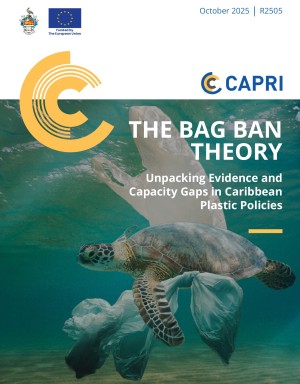
- Read Report25.53 MB
- Read 10 Things497.01 KB
- Read Capsule1.92 MB

The Education Scorecard 2025 provides a comprehensive assessment of Jamaica’s education system across eight key dimensions, from learning outcomes and equity to financing and accountability. While progress has been made in areas like standards and gender parity, critical gaps persist. This report offers evidence-based insights and urgent reforms to…
- READ REPORT4.48 MB
- READ 10 THINGS1.19 MB
- READ CAPSULE9.73 MB
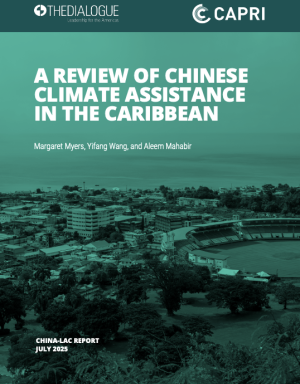
This report is a joint product of the Asia & Latin America Program at the Inter-American Dialogue and the Caribbean Policy Research Institute and offers an assessment of the depth, breadth, and comparative nature of China’s direct climate cooperation with the Caribbean from 2013 to 2023.
- READ REPORT6.57 MB
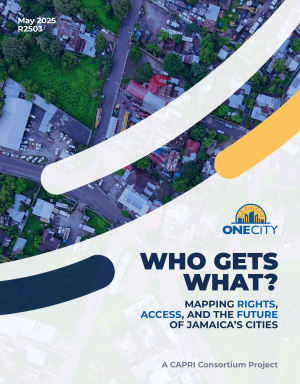
- READ REPORT8.92 MB
- READ CAPSULE2.98 MB
- READ 10 THINGS2.35 MB
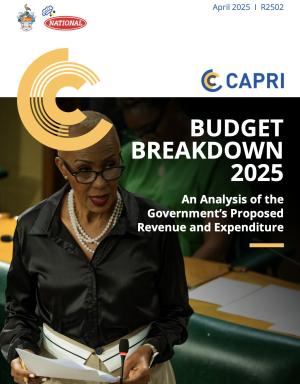
This report analyses Jamaica’s budget for the fiscal year 2025/26, aiming to uncover the development policies and priorities implicit within the numbers put forward. It achieves this by going beyond the headline figures to explain the underlying trends and shifts in priorities.
- READ REPORT12.1 MB
- READ 10 THINGS1.49 MB
- READ CAPSULE1.93 MB
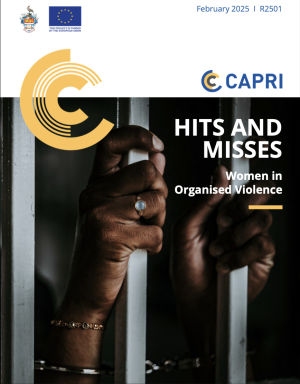
While global female incarceration rates have surged by 33% over the last two decades, Jamaica has seen a steady decline in both the number and rate of incarcerated women since 2012. This contradicts widespread perceptions of increasing female involvement in violence.
The Caribbean Policy Research Institute (CAPRI), with support from the European Union, explores the structural factors…
- READ REPORT13.23 MB
- READ 10 THINGS964.08 KB
- READ CAPSULE1.69 MB

The latest findings from the Open Budget Survey (OBS) for Jamaica have been analysed by CAPRI and the findings are in. This comprehensive report assesses the transparency and openness of the government's budget process, focusing on three key areas: public access to budget information, public participation in the budgeting process, and accountability in financial outcomes.
- READ REPORT16.96 MB
- READ BRIEF1.26 MB
- READ CAPSULE683.59 KB
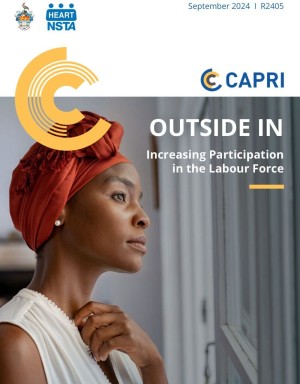
Globally, labour force participation rates have been declining, but Jamaica’s rates have been rising. However, 35% of the eligible working-age population remains outside the labour force.
The Caribbean Policy Research Institute (CAPRI), with funding from the HEART/ NSTA Trust, is launching its latest report titled “Outside In: Increasing Participation in the Labour Force.”
The report…
- READ REPORT15.02 MB
- READ BRIEF841.87 KB

This report evaluates the strategic framework and operational design of Zones of Special Operations (ZOSOs), a 2017 government initiative aimed at reducing Jamaica’s high rates of violent deaths. Utilizing a "clear, hold, and build" strategy from Counterinsurgency Theory, ZOSOs focus on displacing gangs, maintaining security, and fostering community development through social investments.
…
- READ REPORT18.35 MB
- READ 10 THINGS260.61 KB
- READ CAPSULE536.96 KB
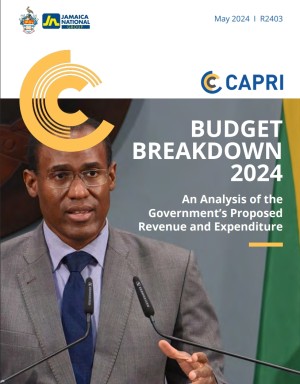
The national budget comprises the government’s expenditure estimates and revenue estimates. The Ministry of Finance and the Public Service prepares the budget and ostensibly reflects the government’s development policies and priorities. CAPRI’s Budget Breakdown provides an informed analysis and perspective on the Jamaican government’s budget for the new fiscal year.
- READ REPORT13.59 MB
- READ BRIEF908.64 KB
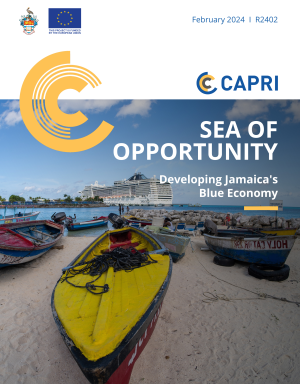
This study examines the blue economy activities in Jamaica, with a focus on artisanal fishers and sustainable fisheries, ecotourism, and blue finance. It explores the potential for economic diversification, and the equitable distribution of social and environmental benefits. The research analyses the opportunity for the development of Jamaica’s blue economy, with a view to addressing these issues,…
- READ REPORT37.72 MB
- READ BRIEF1.32 MB

Jamaica, a traditional labour-exporting country, is currently experiencing record low unemployment of 4.5 percent and a worsening shortage of skills. This skills shortage acts as a constraint on economic growth and development. With funding from the European Union, CAPRI's latest study delves into the matter and propose recommendations based on the findings.
- READ REPORT2.45 MB
- READ BRIEF808.21 KB

